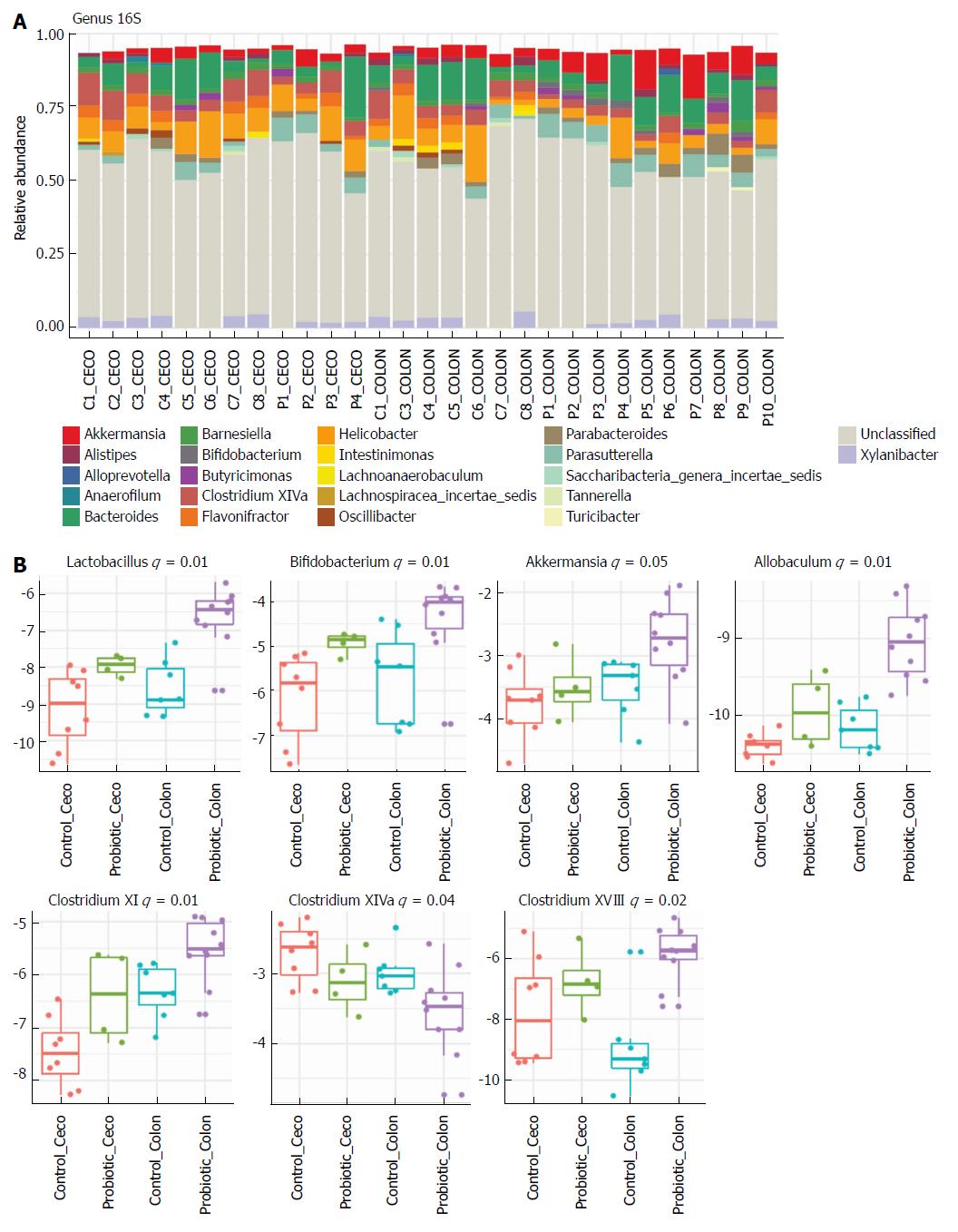Copyright
©The Author(s) 2018.
World J Gastroenterol. May 14, 2018; 24(18): 1995-2008
Published online May 14, 2018. doi: 10.3748/wjg.v24.i18.1995
Published online May 14, 2018. doi: 10.3748/wjg.v24.i18.1995
Figure 3 Probiotic supplementation changes the gut microbiota in the colon at the genus level.
Relative abundance at the genus level in the cecum and colon from control and probiotic-treated groups at day 60 after colon cancer induction. A: Each bar represents an individual animal, and the colour of each cell indicates the relative abundance of the bacterial genus. Taxa with relative abundance greater than 1% are shown. ‘C’ for Control and ‘P’ for Probiotic. B: Box-plot represents log relative normalized abundance at the genus level in the cecum and colon from control and probiotic-treated groups. Only significant P values (q value) obtained by the Kruskal-Wallis test are shown. Control cecum, n = 8; Probiotic cecum, n = 4; Control Colon, n = 7; Probiotic colon, n = 10. Kruskal-Wallis test.
- Citation: Mendes MCS, Paulino DS, Brambilla SR, Camargo JA, Persinoti GF, Carvalheira JBC. Microbiota modification by probiotic supplementation reduces colitis associated colon cancer in mice. World J Gastroenterol 2018; 24(18): 1995-2008
- URL: https://www.wjgnet.com/1007-9327/full/v24/i18/1995.htm
- DOI: https://dx.doi.org/10.3748/wjg.v24.i18.1995









